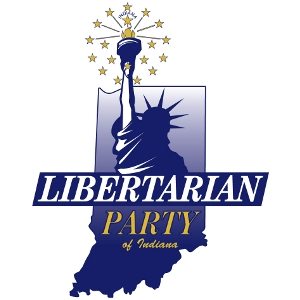By Mark Grannis, Libertarian for Congress, Maryland 8th, and author of Less We Can. Originally posted at LPIN.org
Sooner or later, every Libertarian candidate hears: “I really like your ideas, and I’d vote for you in a heartbeat if I thought you could win. But—no offense—I don’t think you can. And I’m afraid that voting for you will be taking a vote away from Smith, who may need it to beat Jones. Smith is bad, but Jones is worse.
This is the perennial logic of the “lesser of two evils” voter. But voting for the “winner” doesn’t change anything. Government keeps getting bigger – whether the Democrat or Republican is elected.
Voting Libertarian -– can change everything.
Here are some of the ways your Libertarian vote changes government policy.
1. Policy is often influenced by identifiable voting blocs that never achieve majority status on their own.
How many times over the years have we heard how politicians were courting the black vote or the Hispanic vote? The Catholic vote or the evangelical vote? Soccer moms or NASCAR dads? Such groups exert influence not by becoming numerous enough to win, but by becoming numerous enough and cohesive enough to swing the election from one side to the other.
Liberty-minded voters are already numerous enough to exert that kind of influence, but too many of us throw in the towel on Election Day (either by voting for the lesser of two evils or by staying home). If we want those in power to pay attention to the liberty vote, they have to be able to read our strength in the election results. That means we can’t just talk about liberty and small government during the campaign and then throw up our hands in November. We have to hold out for liberty and small government all the way to the end – and vote Libertarian.
If we do that, incumbents will look for ways to attract us. How? By adopting some of the pro-liberty proposals we advocate. That’s the first practical effect we’re after: less government, and more liberty.
2. The emergence of a sizeable liberty vote influences candidate selection by other opposition parties.
If you’re disappointed that the two old parties have once again both nominated candidates who refuse to cut government spending, who insist that our military should be fighting other people’s wars overseas, and who support radical curtailments of our civil liberties (up to and including military arrest and detainment of U.S. citizens on U.S. soil without formal charges or a public trial by jury), this point is for you: The duopoly parties are ignoring you because the party establishments are pretty sure you’ll stay on the trolley no matter which way it’s heading on the road to serfdom. The fastest way to change that is to get off the trolley and prove we have our limits.
The major parties are more committed to acquiring power than they are to any plank of their platforms, and they spend a lot of time worrying about who is “electable.” We can have a major effect on candidate selection if our message is: respect liberty, or get used to losing.
3. Even single-digit showings by Libertarian candidates can dramatically strengthen future Libertarian campaigns.
There are many states where ballot access in the next election depends on how this year’s candidates fare at the polls.
4. Voting for liberty candidates affects the way the press covers future elections.
The press has a predilection for “horse race journalism,” covering politics in terms of who is winning or losing, or who is surging or fading. That focus makes public debate narrower than it ought to be during a campaign, and it is almost tantamount to no debate at all where the race is not expected to be close.
Some news organizations do not include Libertarians in their candidate debates, or do not interview Libertarian candidates before making endorsements. All of these practices rest on self-fulfilling prophecies and circular reasoning: Candidate X isn’t considered viable. Why not? No one has ever heard of him. Why not? He doesn’t get any coverage. Why not? He isn’t considered viable. It would be great if we could get the press to stop narrowing public debate this way. But wouldn’t it be a lot easier, and a lot more practical, for all of us who really wish Candidate X could win to simply vote for Candidate X? That would communicate loud and clear that liberty candidates start with a substantial base of support in their communities.
5. Voting Libertarian says that Big Government is unacceptable – and that we demand freedom and small government.
If we use our votes to communicate that we really want to balance the budget, revitalize the economy, end the wars, and restore civil liberties, they become possible. If we don’t, they remain impossible.
If you really want less government and more liberty, vote Libertarian. That’s the only way for you not to waste your vote.
Our ancestors didn’t fight and bleed for your rights to life, liberty, and the lesser of two evils.
Patrick Henry did not thunder for all the ages, “Give me Liberty, or give me whatever everyone else is having.”
Martin Luther King did not stand on the steps of the Lincoln Memorial and tell us, “I have a dream, but I’ll settle for less.”
No. The great ones who have preceded us showed their greatness in their commitment to principle—and in their recognition that the “lesser of two evils” isn’t good enough.
Now it’s your turn to march in that same parade of history. Don’t blow it—your children are watching. Stand up and be counted for the kind of government you’d really like to have. Vote for less government, more liberty, more prosperity, and more security.
Vote Libertarian.

